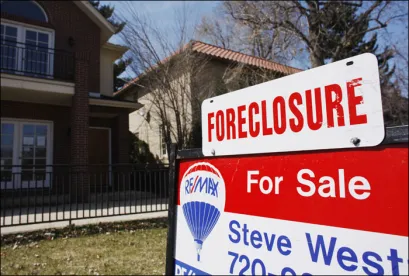In a ruling that will provide guidance on when lenders must raise a foreclosure counterclaim in a borrower lawsuit, the South Carolina Court of Appeals in Deutsche Bank National Trust Company v. Estate of Patricia Ann Owens Houck has held that foreclosure was not a compulsory counterclaim in a borrower’s suit alleging errors in origination.
In 2013, the mortgagors sued Deutsche Bank and the loan servicer, alleging errors in the origination of their loan, including the allegation that no attorney closed the loan as required under South Carolina law. The lawsuit did not specifically ask for the loan to be declared unenforceable, though it included a statutory claim under which this was one of several potential remedies. The loan matured and went into default for nonpayment shortly after the mortgagors filed suit. Deutsche Bank successfully defended the suit, winning a defense verdict at a jury trial in 2015.
Following the lender’s trial win, the mortgagors sought to snatch victory from the jaws of defeat by arguing that Deutsche Bank was obliged to file its foreclosure as a compulsory counterclaim in the 2013 suit, and that having failed to do so, the mortgage was now unenforceable. The mortgagors demanded that Deutsche Bank record a satisfaction of its mortgage, which it refused to do. Deutsche Bank then filed a foreclosure action, and mortgagors filed counterclaims seeking to declare the mortgage unenforceable and for statutory penalties for failure to satisfy the mortgage. The trial court issued a split ruling on these claims, finding that the foreclosure was barred by res judicata but declining to award penalties against the lender for the prior failure to satisfy the mortgage. Both sides appealed the ruling.
On appeal, the South Carolina Court of Appeals agreed with the lender’s argument that the foreclosure was not “logically related” to the borrower’s claims in the 2013 suit because those claims arose solely out of the loan origination, whereas the foreclosure arose from the borrowers’ default on the loan. The court further agreed that the foreclosure, if proven, would not have been a defense to the borrower’s claims. As such, the foreclosure was not a compulsory counterclaim, and the court reversed the trial court’s ruling that it was barred by res judicata.
This ruling can be expected to give lenders greater discretion in deciding whether to suspend foreclosure activity when sued by borrowers in the Palmetto State. Nevertheless, the ruling is not a blanket exemption from the perils of failing to file a compulsory counterclaim. Lenders must continue to scrutinize borrower complaints to determine when a counterclaim is required to preserve their right to enforce the loan. In some instances, lenders may be able to agree on a consent order with the mortgagor at the commencement of the suit to stipulate that foreclosure will not be deemed compulsory and need not be filed as a counterclaim.





 />i
/>i

